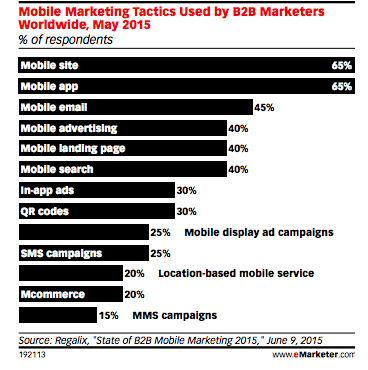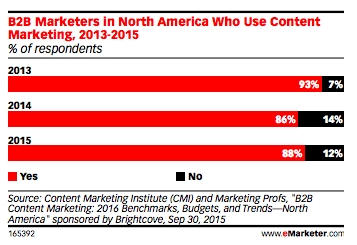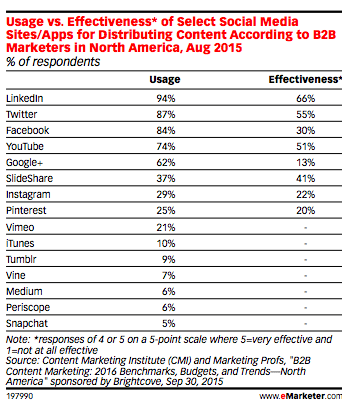New trends affecting the B2B marketing industry this year
Now that we're half-way through 2016, it's a good time for B2B marketers to review the marketing tactics they've been using so far this year, and assess their effectiveness against the industry average. B2B has often lagged behind B2C in previous years, as whilst B2C has embraced new digital technology such as mobile and social media, B2B has been slower on the uptake.
This is starting to change, as the B2B sector has for the past couple of years been realising the importance of new technologies such as real-time personalisation, marketing automation and mobile.
Before getting stuck into the very latest trends, it's important to establish the most important marketing channels for B2B, so that marketers aren't chasing the latest fads whilst not spending the lion's share of their time on the channels delivering the vast majority of their leads or sales.
We've focused on lead nurturing because this is a key activity for B2B marketers, as often the sales process with a B2B solution involves a considerable degree of negotiation, nurturing, and personalisation, because the end product may have a price tag of several thousand or even hundreds of thousands of pounds.
Mobile marketing
It goes without saying that the shift to mobile is a key trend for B2B marketers, as it has been for several years now. Mobile now accounts for over half of web traffic, and where previously B2B companies could assume that their customers would be researching them on desktop devices, now a new breed of business owner using mobile devices to research solutions on the go means B2B marketers need to be sure that their content is mobile optimised to ensure a smooth processes for users on all devices.
Over half of B2B businesses have mobile sites and mobile apps, which shows the industry is finally starting to get is act together on mobile. For some industries, having a mobile app won't be necessary, but really all should have mobile responsive sites. Even if none of your customers are arriving on mobile devices (which some certainly will), you still need a responsive site because of Google's 'mobilegeddon' update, as otherwise you'll be getting penalised.
Content marketing
Content marketing is a great tactic for B2B marketers because the long customer journey means customers will want to do plenty of research before purchasing, and compare several different providers.
Although a very popular tactic among B2B marketers, with the vast majority using it, there does seem to be a stubborn minority of digital laggards which aren't taking it up. The variation between years in this particular graph is probably primarily explained by differences in those surveyed, rather than indicative a broader trend. Generally, we've seen content marketing budgets increase markedly in recent years.
Social media
B2B businesses tend to get the best results from LinkedIn and Twitter, but are present across a wide range of social networks. Youtube and Slideshare also stand out as particularly effective, whilst Google+ is very ineffective considering the majority of B2B businesses are using it.
With B2B social media it's often important to prioritise, as whilst it is easy to set up an account on a new social network, it requires plenty of effort to run it effectively. Focusing only on the most effective networks is usually the best tactic.
Marketing automation
Marketing automation is the perfect technology for B2B marketing. It provides a fantastically useful way of nurturing leads along the journey to purchase. A key aspect of almost any marketing automation platform is triggered emails. The chart below show these are popular among B2B marketers. But for most the majority of emails they are sending are not triggered by a given event, but are instead broadcast emails.
The reason more B2B marketing email campaigns aren't triggered is probably accounted for by a lack of capacity to send event-triggered emails, rather than a preference for broadcast emails. Only 9% of B2B marketers thought that they have all the tools they need and are fully utilising them. In total two-thirds of B2B marketers reported not having the tools they needed for marketing automation.
The lack of capacity for better-implementing marketing automation solutions in B2B businesses is explained primarily by the issue of integrating different technologies.
Budget is also an issue for some, as is a lack of an overall strategy. The vast number of marketing tools on offer can often complicate matters. We've put together a guide which details the pros and cons of 150 different marketing tools, structured by the RACE framework. It's free to download for all members, and we hope it's useful if you're considering investing in new marketing software.
For more insights into B2B marketing trends, you can download the full report from emarketer.
from Smart Insights http://ift.tt/1U8K2Cx
via IFTTT








0 comments:
Post a Comment